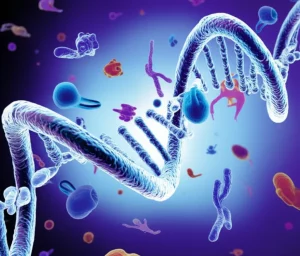Propolis: Your Liver’s New Best Friend? How Bee Stuff Helps Gut Health
Hey there! Ever heard of propolis? It’s that amazing, sticky stuff bees collect from plants. For ages, people have used it for all sorts of health reasons, and honestly, it’s got a pretty impressive resume – antioxidant, anti-inflammatory, even helping out your immune system. I mean, who knew bee gunk could be so powerful?
Now, let’s talk about your liver. It’s a superstar organ, right? Doing all the heavy lifting for metabolism and detox. But sometimes, things go wrong, and you can end up with something called acute liver injury (ALI). It’s serious business, potentially leading to major complications. Managing it is crucial, but finding really effective treatments? That’s the tricky part.
We know that inflammation and oxidative stress are big troublemakers when it comes to liver problems. They get into this nasty cycle that just makes things worse. So, naturally, scientists have been looking at things that can fight inflammation and stress. And guess what? Propolis pops up again because it’s packed with those very properties. Studies have shown it can protect the liver from various toxins and issues.
But here’s where it gets even more interesting. More and more research is pointing to a super important connection between your gut bacteria (your gut flora) and liver health. It’s like your gut and your liver are constantly chatting. When your gut bugs are out of whack, it can send distress signals (like LPS, which is a key player in this study) up to your liver, causing inflammation and damage.
And guess what *else* propolis seems to do? It looks like it can help tidy up that gut flora! Studies in mice have shown propolis can shift the balance, increasing the good-guy bacteria and decreasing the bad ones, which is pretty neat.
Unpacking the Bee Magic
So, a team of smart folks decided to dive deep into *how* propolis, specifically Chinese propolis (CP), actually protects the liver, especially when it’s under attack from something like LPS. They used some pretty cool high-tech tools:
- Network pharmacology: Think of this like using computers to map out which compounds in propolis might hit which targets in the body related to liver injury.
- Serum metabolomics: This is like taking a snapshot of all the tiny molecules (metabolites) floating around in your blood to see how propolis changes your body’s chemistry.
- 16S rRNA sequencing: This is the fancy way of saying they looked closely at the DNA of the gut bacteria to see how propolis affects the microbial community.
They basically wanted to see the whole picture – the active ingredients, what they target, how they change your body’s chemistry, and how they influence your gut bugs, all in the context of acute liver injury.

The Superstar Ingredients
Using network pharmacology, they figured out that the main active players in propolis against liver injury are mostly flavonoids and phenolic acids. The top three rockstars? Quercetin, luteolin, and kaempferol. You might have heard of quercetin – it’s a pretty well-known antioxidant found in lots of plants. Turns out, these compounds seem to be really good at binding to and calming down those pro-inflammatory factors like TNF-α, IL-6, and IL-1β that cause so much trouble in the liver.
Putting it to the Test (in Mice)
To see if this theory held up, they did experiments with mice. They gave some mice LPS to induce acute liver injury, and others got propolis or just quercetin beforehand.
What they saw was pretty encouraging:
- The mice treated with propolis and quercetin showed much less liver damage compared to the LPS-only group. Their liver tissue looked healthier under the microscope.
- Levels of liver enzymes (ALT and AST), which go up when the liver is damaged, were significantly reduced by propolis and quercetin treatment.
- The expression of pro-inflammatory genes and proteins (like TNF-α, IL-1β, IL-6) went down in the treated mice. This confirms that propolis and quercetin have strong anti-inflammatory effects against this type of liver injury.
- They also saw an *increase* in antioxidant factors (Nrf2 and HO-1), suggesting propolis helps the liver fight off oxidative stress too.
Basically, propolis and quercetin seemed to really step in and protect the liver from the LPS attack.
Metabolites: The Body’s Chemical Signals
Next, they looked at the serum metabolites. This is where it gets a bit more technical, but the gist is that propolis and quercetin helped to reverse the metabolic mess caused by LPS. One pathway that stood out was the ascorbate and aldarate metabolism.
Why is this important? Ascorbate is just another name for Vitamin C, a powerful antioxidant and anti-inflammatory. The study found that propolis and quercetin increased the levels of metabolites like β-D-glucuronoside, glucuronate, and L-gulonate in the mice’s serum. These are steps on the pathway to making ascorbate. This suggests that propolis might be helping the body produce more of this protective vitamin, boosting its ability to fight inflammation and stress in the liver.

The Gut Bug Connection
Now, for the gut flora part. The LPS injection definitely messed up the balance of gut bacteria in the mice. But when the mice were pre-treated with propolis or quercetin, their gut microbial community started to look more like the healthy control group.
Specifically, propolis and quercetin seemed to:
- Increase the relative abundance of beneficial, anti-inflammatory bacteria like Lactobacillus and Dubosiella. Lactobacillus is a well-known probiotic, and Dubosiella is a newer discovery that looks promising for liver health.
- Decrease the relative abundance of pro-inflammatory bacteria like Alistipes, which has been linked to inflammation in other studies.
This is a big deal because it supports the idea that propolis isn’t just acting directly on the liver; it’s also working through the gut-liver axis by improving the balance of your internal microbial residents.

Connecting the Dots
To really see how everything was linked, they did a correlation analysis. And yep, they found significant connections between the inflammatory factors, those beneficial metabolites (like the ones in the ascorbate pathway), and the changes in gut bacteria. For instance, the beneficial bacteria Dubosiella was negatively correlated with inflammatory markers (meaning more Dubosiella, less inflammation), while the problematic Alistipes was positively correlated (more Alistipes, more inflammation).
This study provides some solid evidence that propolis helps alleviate acute liver injury by working on multiple fronts:
- Directly targeting inflammation with its active compounds (like quercetin).
- Boosting the body’s antioxidant capacity, possibly by influencing pathways like ascorbate metabolism.
- Restoring a healthier balance in the gut microbiota, which in turn reduces the inflammatory signals sent to the liver.
It’s a pretty comprehensive picture, showing how this natural bee product can have such a protective effect.

What Does It All Mean?
For me, this study is exciting because it adds more scientific weight to the traditional uses of propolis. It’s not just anecdotal anymore; we’re starting to understand the specific compounds, targets, and pathways involved. The fact that it seems to work by improving both metabolism *and* gut health, in addition to directly fighting inflammation, highlights its potential as a natural way to support liver health.
Of course, this was a study in mice, and more research is always needed to see how these findings translate to humans. But it certainly provides a strong theoretical and experimental basis for exploring propolis and its key components further as potential health foods or medicines for liver issues. It’s pretty cool to think that something as simple as bee propolis could be such a powerful ally for our internal health, especially for something as vital as our liver and the delicate balance of our gut.
Source: Springer







